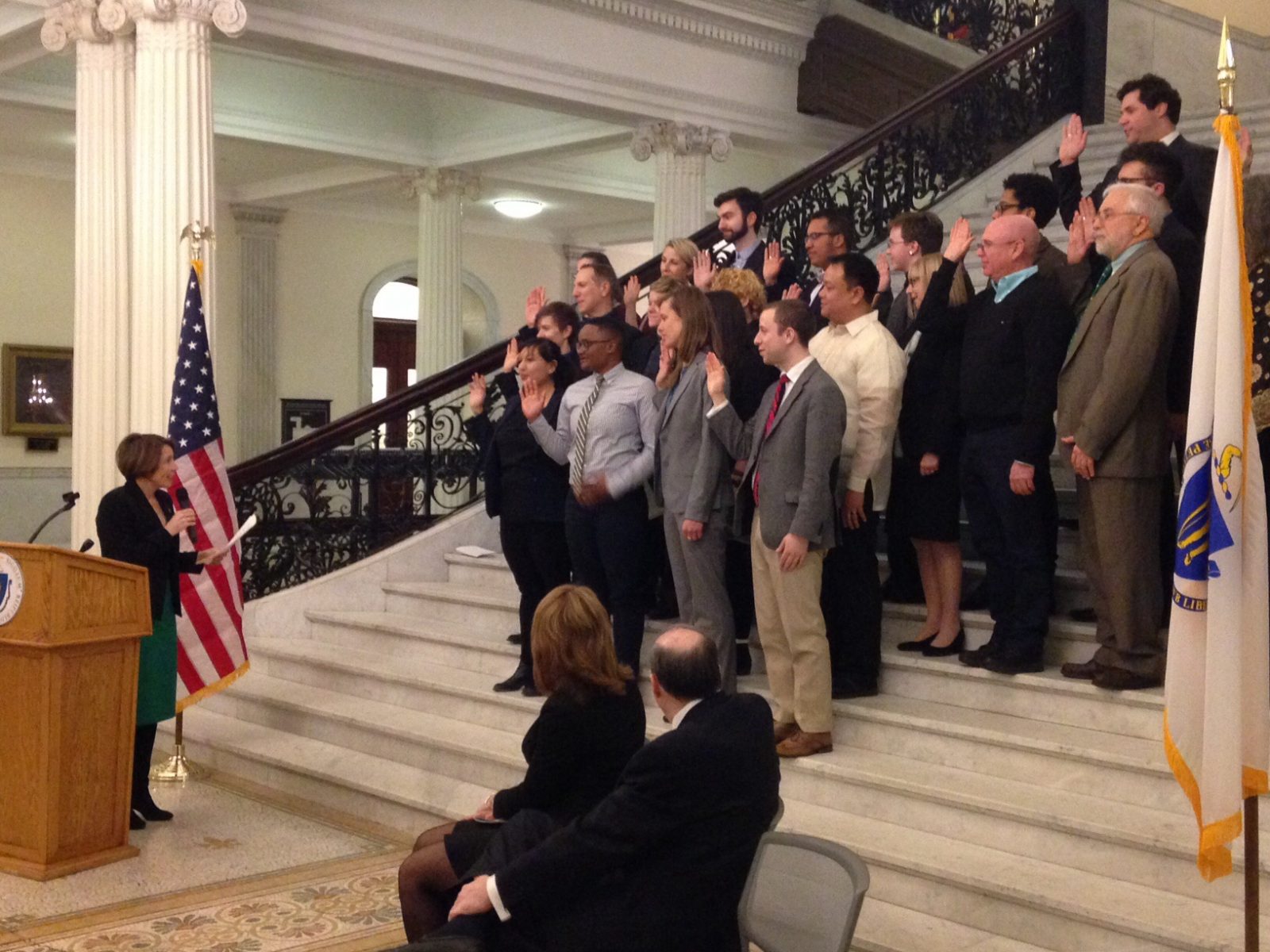BOSTON (AP) — Massachusetts must do more to help meet the needs of the state’s gay, lesbian, bisexual, and transgender youth.
That’s the conclusion of a report released yesterday by a state commission charged with making recommendations to Massachusetts policymakers.
The report recommends Massachusetts adopt new strategies to allow state agencies to collect data on gender identity and sexual orientation. It also recommends expanding non-discrimination policies to include gender identity.
Attorney General Maura Healey, the nation’s first openly gay attorney general, praised the report.
Healey pointed to other problems facing many gay, lesbian, bisexual, and transgender youth, including homelessness, bullying and substance abuse.
Lt. Gov. Karen Polito told the commission members that she and Gov. Charlie Baker are committed to helping improve the lives of all young people, including gay, lesbian, bisexual, and transgender youth.
The Massachusetts Commission on Lesbian, Gay, Bisexual, Transgender, Queer, and Questioning (LGBTQ) Youth released the new recommendations yesterday at the annual swearing-in ceremony of commission members at the Massachusetts State House. Polito and Senate President Stanley Rosenberg took part in the ceremony. House Speaker Robert DeLeo sent a letter of support and congratulations to be read on his behalf. Healey swore in the 48 members of the commission.
“I appreciate the opportunity to join today’s important ceremony and will welcome future conversations about ways to make the Commonwealth and our communities better for LGBTQ youth and all our children,” said Polito.
“Administering the oath of office for such an important commission is a tremendous honor for me,” Healey said. “Emphasizing diversity, inclusion, and a deep respect for one another, this commission is crucial to promoting the health and safety of our LGBTQ youth in our schools and communities.”
“Each year our swearing-in ceremony is both a celebration of the completion of our annual policy recommendations and a day to bring together community stakeholders, elected officials, and loved ones to welcome new commission members to this important and challenging work,” said Julian Dormitzer, commission chairperson. “We are thrilled to have support from such a broad range of political leaders, and are honored to have an important champion of LGBTQ rights, Attorney General Maura Healey, swearing us in.”
The commission’s recommendations address 15 state agencies and the Massachusetts Legislature. The commission outlined several core recommendations for the agencies in its report, including:
· Adopting data collection practices that will allow agencies to receive data on gender identity and sexual orientation;
· Identifying and strengthening LGBTQ-affirming resources, internally and externally, including dedicated staff hours to address relevant issues;
· Developing stronger guidance, best-practices and model policies for working with LGBTQ youth; and
· Expanding agency non-discrimination policies to include gender identity.
“Thanks to all of the members of the LGBTQ Youth Commission for their service. Their work with a variety of state agencies addressing concerns such as preventing homelessness, discrimination, harassment and suicide among LGBTQ youth has never been more critical,” said Rosenberg. “I look forward to working with members of the commission as they pursue policies and programs to help these young people.”
The report also identifies more than 60 agency-specific recommendations with the goal of better supporting LGBTQ youth in every city and town in Massachusetts. The commission will work over the next year in partnership with the Baker administration and the Legislature to advocate for resources in the FY16 budget that will help fund the implementation of some recommendations.
Among the commission’s priority legislation for the current session is “An Act Relative to Gender Identity and Non Discrimination,” a bill that would add gender identity to existing Massachusetts civil rights laws for public accommodations, which currently allow for the exclusion of transgender people. Public accommodations include any place that is open to the public and offers a good or service. These spaces are common areas of vital importance to most people’s daily lives, such as grocery stores, medical offices, public transportation, hotels, restaurants, public parks, areas of entertainment and more. In 2011, Massachusetts added “gender identity” as a protected characteristic to Massachusetts’ employment, housing, credit and public education anti-discrimination laws and to Massachusetts’ hate crimes law. The Commission on LGBTQ Youth argues that the addition of public accommodations will fill a glaring gap in the state’s civil rights protections for transgender citizens.
To read the Commission’s report visit mass.gov/cgly.


